The ChatGPT 'fever' continues to penetrate and motivate businesses to apply artificial intelligence (AI) solutions to their business operations.
Recently, the e-commerce site Tiki has integrated ChatGPT into its website and application for customers to use for free. This move was said by Mr. Dang Dang Truong, an expert working in the field of e-commerce for 6 years, that the company wants to take advantage of ChatGPT's appeal to increase the number of application downloads and the time users spend on the platform.
Similarly, the language learning app Duolingo is also planning to launch a new feature package that integrates AI, developed by OpenAI - the owner of ChatGPT. Earlier this month, they also started making money in Vietnam with a paid package after many years of not exploiting revenue.

Some companies have started using ChatGPT to compose emails to customers and write communication content. Photo: Pixabay
Meanwhile, some other companies use this chatbot for internal operations. Mr. Nam Phong, an employee of a 30-person media company in Ho Chi Minh City, said that he was encouraged by the CEO to use ChatGPT in his work since the beginning of this year.
"This AI helps us write neat English letters to customers or check spelling and grammar errors in the text, adjusting the 'tone' according to needs. It suggests topics for uncreative articles but also provides ideas for development," Phong said. He said he has saved 20-30% of work processing time compared to before. Writing emails alone can be 30-40% faster.
Vietnamese Community Online Services Company - the owner of the Payoo payment infrastructure - recently internally issued a "ChatGPT User Manual" with 50 things to know about the tool. In it, employees are guided from basic knowledge, effective usage, notes and limitations.
Mr. Ngo Trung Linh, General Director of this company, gives employees ChatGPT-4 accounts, which are used to support email composing, document translation, suggest ideas for internal projects, and suggest file arrangement.
Artificial Intelligence (AI) has been a hot technology topic over the past decade. AI has also been used in healthcare , image recognition, eKYC (electronic identification), shopping payments, and predicting customer potential in Vietnam in recent years.
But the arrival of ChatGPT in November 2022 has really caught the attention of businesses. "Never before has the world changed and redefined the way we learn, work and live so quickly," commented Ms. Lam Thuy Nga, Country Director of HSBC Vietnam's Large Corporate Banking Division.
In a recent assessment, "AI (artificial intelligence) / ML (machine learning) / Mobile AI / ChatGPT" is the group topping the list of "hot" keywords for the Vietnamese technology landscape in 2023, according to the Vietnam Mobile Day forum.
The difference is that while predictive machine learning models were at the center of the discussion before, generative AI models like ChatGPT are now taking the lead. Regardless of the AI model, the overall AI application market is accelerating.
In Australia, one in four radiologists uses AI decision support solutions from Annalise.ai, a technology company founded by Vietnamese brothers Dimitry Tran and Aengus Tran.
Their solution has recently been embraced in Vietnam, through a partnership with Hoan My Medical Group. “When my brother and I first set foot in Australia, we knew that one day we would have the opportunity to invest our time and resources back home,” says Dimitry Tran, Co-founder and CEO.
Kiki, a “Made in Vietnam” voice assistant, has surpassed 300,000 installations in cars, according to COO Nguyen Trong Van. Korean auto parts manufacturer Motrex recently announced it will integrate this AI into its devices.
Motrex CEO Kim Junseon said smart assistant platforms will become a future trend for the auto industry in Vietnam. The company expects to complete the integration process in the second quarter of 2023.
According to online data platform Stastista (Germany), as of March, the most invested AI projects in Vietnam were OKXE – an e-commerce platform, Edmicro Education – an online education service provider, and VNPay – a digital payment platform.
Meanwhile, in the startup sector, the value of investments in Vietnamese AI startups peaked in 2021, with about $23 million spread across nine different investment deals. Stastista predicts that the investment trend will expand across more diverse industrial platforms.
According to Dr. Son Pham, CEO of BioTuring, in the face of global competition, businesses need to continuously innovate with the question of which tasks humans and machines can do better. "Although there are still many unsolved problems, with the support of AI, there are problems that were thought to be impossible for humans to solve, but have been solved thanks to AI," Mr. Son said.
A study by the US consulting firm EBDI said that the GDP of five Southeast Asian countries (Singapore, Malaysia, Thailand, Vietnam and the Philippines) could increase by $1,000 billion if AI is fully invested in and well implemented.
However, when applying ChatGPT in particular and AI in general, businesses still need to be alert and take note. Assessing at the AI discussion session of the Vietnam Commercial Arbitration and Mediation Week 2023 (VAW 2023) recently, Mr. Jason Chan, an expert from Allen & Gledhill law firm (Singapore), ChatGPT is a tool that contributes to equalization when the gap in technology tool resources between companies was quite large in the past.
Professor Umut Turksen, Coventry University (UK), recommends that when applying any AI, the input data must be clean, neat and reliable. He noted 5 principles including: transparency (understanding how AI makes decisions and what its role is); compliance with legal regulations; ensuring privacy; ability to withstand strong attacks - manipulation; and non-malicious use.
"We tend to want to do things faster, more cost-effectively. But think about it, we could drive faster but we don't do it for a reason. Similarly, AI is a supplement, not a replacement, and it has to be in the cultural and social context. Be careful what we wish for," he said.
Yi Tung
Source link


![[Photo] Cutting hills to make way for people to travel on route 14E that suffered landslides](https://vphoto.vietnam.vn/thumb/1200x675/vietnam/resource/IMAGE/2025/11/08/1762599969318_ndo_br_thiet-ke-chua-co-ten-2025-11-08t154639923-png.webp)





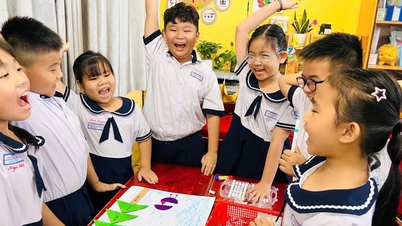

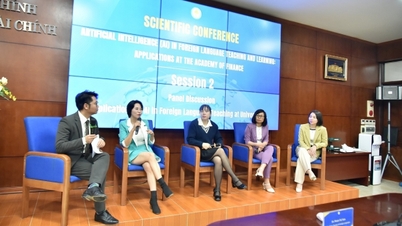



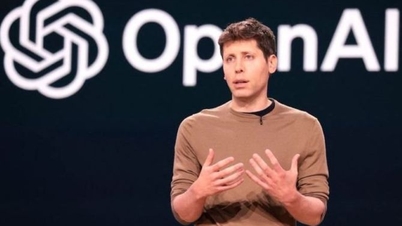

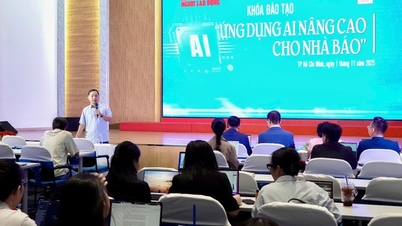

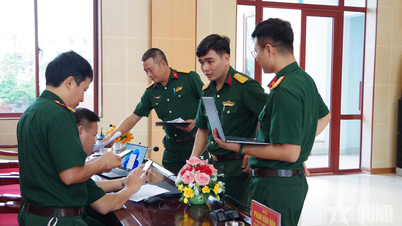

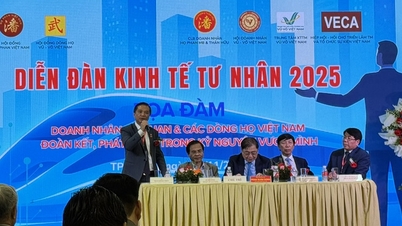



























![[Video] Hue Monuments reopen to welcome visitors](https://vphoto.vietnam.vn/thumb/402x226/vietnam/resource/IMAGE/2025/11/05/1762301089171_dung01-05-43-09still013-jpg.webp)












































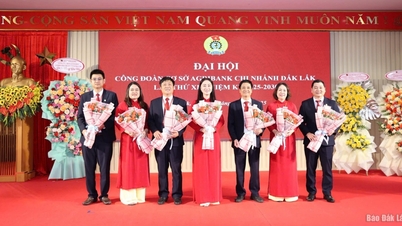



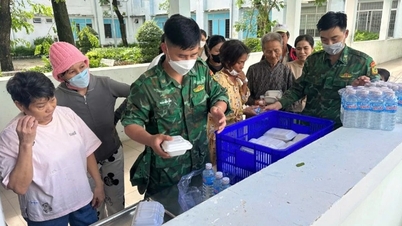














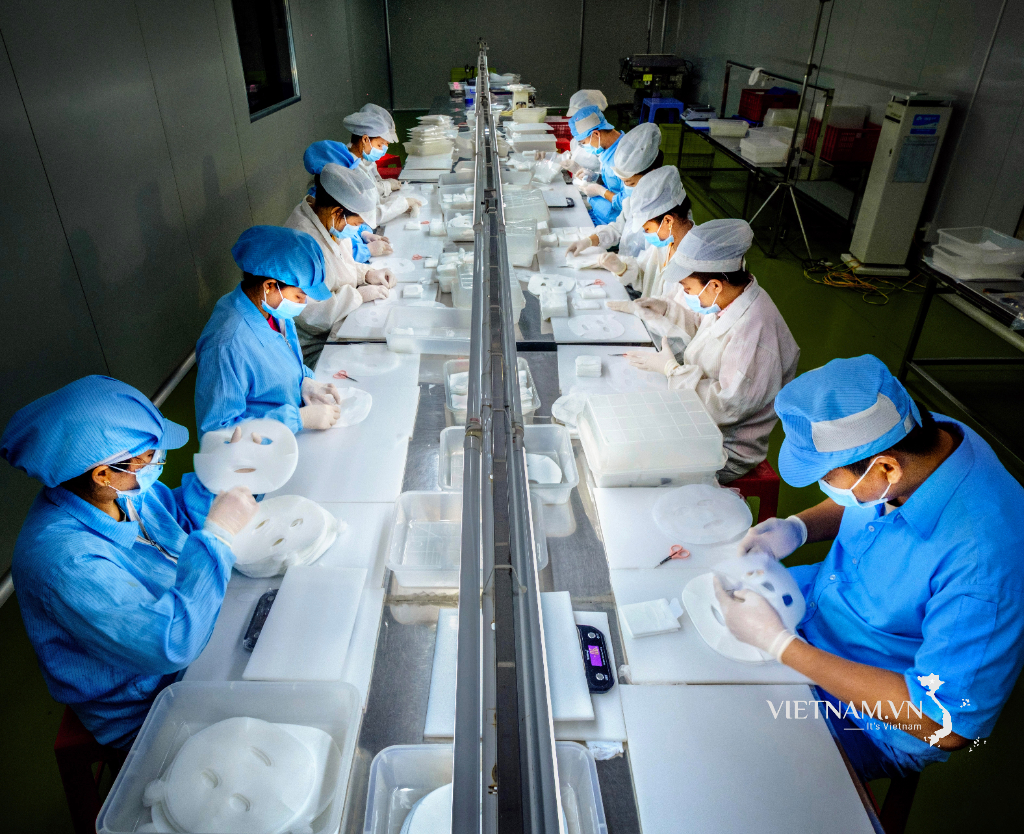

Comment (0)